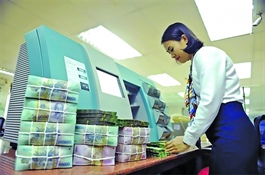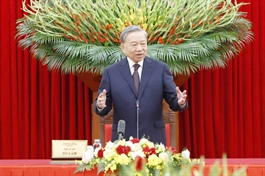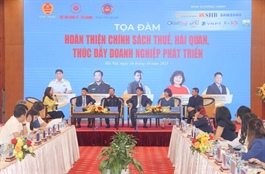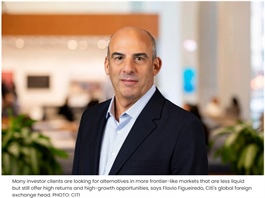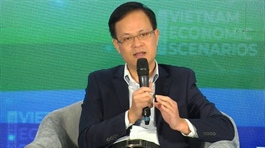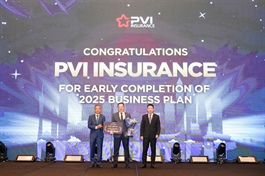SAV and ACCA lead discussion on building trustworthy AI in auditing
SAV and ACCA lead discussion on building trustworthy AI in auditing
As digital transformation continues to reshape industries across the globe, AI has emerged as a powerful driver of innovation and efficiency in governance, particularly within accounting, auditing, and the public sector.
Within the framework of an international dialogue co-hosted by the State Audit Office of Vietnam (SAV) and the Association of Chartered Certified Accountants (ACCA) on October 13 in Hanoi, a panel discussion on smart auditing brought together leading experts from Deloitte Vietnam, Standard Chartered Bank, the SAV, and ACCA.
The session examined the opportunities, challenges, and risk management frameworks related to AI adoption, with the shared goal of fostering a transparent and sustainable financial and auditing ecosystem.
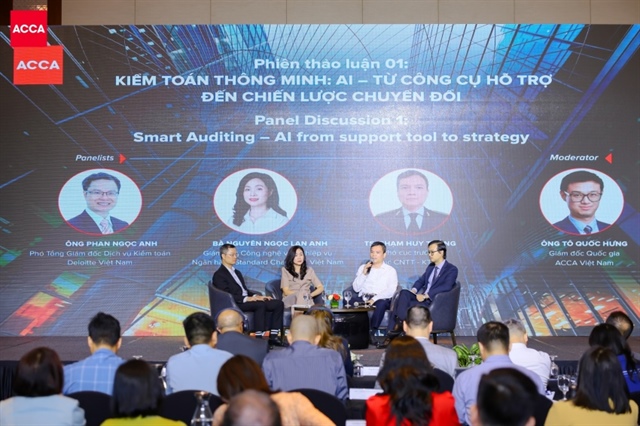
The panel discussion featured leading experts from the accounting and auditing fields. Photo: ACCA Vietnam |
During the session, Phan Ngoc Anh, a partner of audit services at Deloitte Vietnam, highlighted that the adoption of AI in auditing requires a dual focus, leveraging technological strength while safeguarding data security and transparency.
"This is a major challenge for any organisation implementing AI. The complexity lies not only in technology itself but also in governance, how to ensure AI enhances efficiency while maintaining user trust," Anh noted.
He shared that Deloitte has developed a trusted AI framework including seven key principles to ensure that AI is deployed transparently, safely, and responsibly. Among these, system security and data protection are at the core, complemented by transparency, fairness, explainability, verifiability, privacy, and accountability.
"AI's data-processing capacity is exceptional, but it remains a tool. Ultimately, humans, auditors, experts, and managers, hold responsibility for ensuring that AI operates in line with ethical and professional standards," he said.
He also added that businesses must establish dual control mechanisms to balance economic efficiency with transparency and social responsibility.
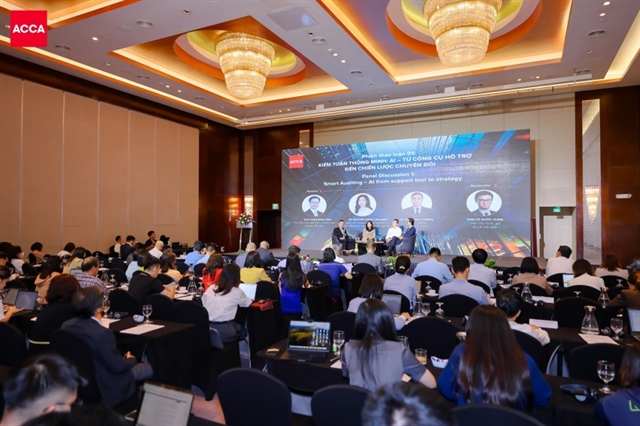
The event gathered strong interest and participation from accounting and auditing communities worldwide. Photo: ACCA Vietnam |
Echoing this view, Nguyen Ngoc Lan Anh, CTO of Standard Chartered Bank, underlined that in the financial and banking sectors, regulatory compliance and data protection remain paramount.
"With operations in over 60 markets, Standard Chartered must adhere to multiple AI regulatory frameworks, from the UK, EU, and US to Singapore and Vietnam. This is undoubtedly a challenge, but it also enables us to build a unified set of principles based on our core values: safety, transparency, fairness, and risk control," she said.
According to Lan Anh, AI risk management should not be treated as an afterthought, but must be embedded from the design stage. “If AI is a powerful engine, then risk control mechanisms are the brakes that help businesses stay on course for sustainable growth,” she explained.
Meanwhile, Dr Pham Huy Thong, deputy director general of the IT department at the SAV, identified three major challenges in applying AI to auditing: fragmented infrastructure, limited data security and sharing among agencies, and a shortage of high-quality human resources.
“To address these challenges, the State Audit Office has proposed a project on applying big data and AI in auditing for the 2026 phase, focusing on strengthening server infrastructure, cybersecurity, and data connectivity to support AI deployment,” Thong said.
He added that in response to the global AI boom since 2024, the SAV has proactively updated its strategy to accelerate the adoption of AI in professional activities. In April, the IT department submitted its first pilot product, marking a milestone in the digital transformation of the national audit system.
"We are also partnering with international organisations such as ACCA to exchange knowledge, provide training, and empower auditors to master new technologies. The ultimate goal is to make AI a powerful enabler, enhancing the capability and efficiency of public sector auditing," Thong shared.
Experts at the session agreed that AI implementation is not only a technical matter but also a question of governance, ethics, and accountability. Public-private collaboration, such as the partnership between the SAV and ACCA, is seen as essential to strengthen auditing capacity for major projects, optimise resources, and ensure transparency in public investment.
- 09:15 20/10/2025








